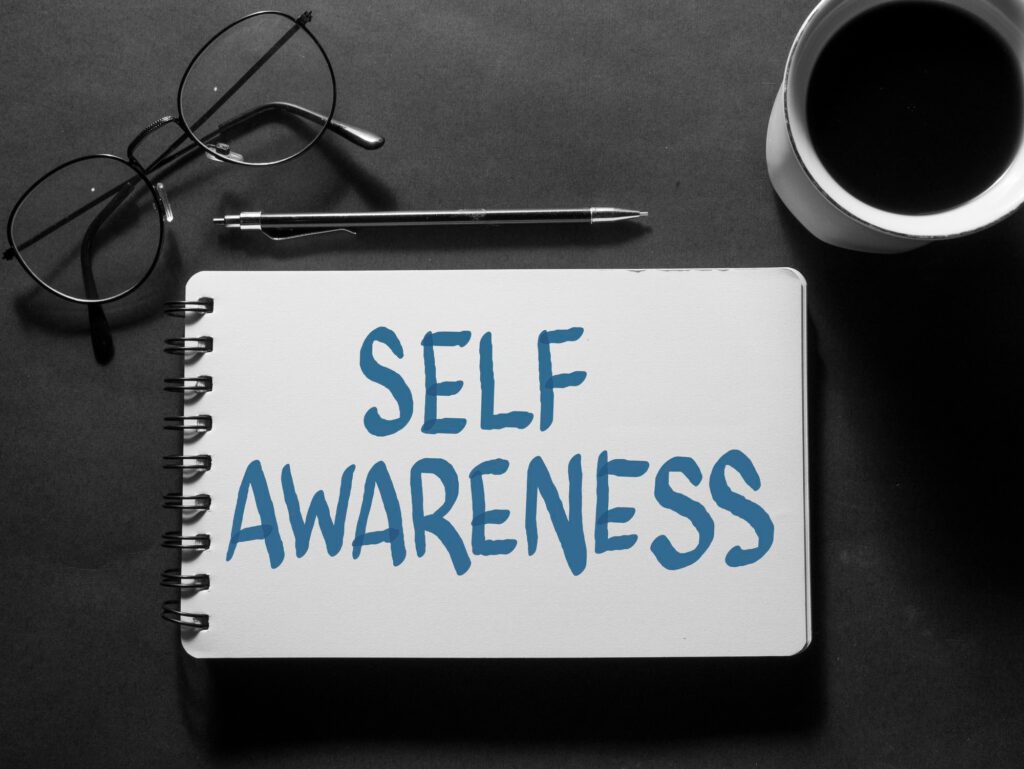Leadership involves making important decisions, which a strong sense of ethics and values should guide. The key to good leadership is self-awareness. It helps you face challenges with confidence and inspires your team to achieve new heights. Let us explore the significance of self-awareness and examine several effective methods to cultivate it.

The Power of Self-Awareness in Leadership
The capacity for wise decision-making is essential for effective leadership, but what criteria determine whether a decision can be considered “fair”? Self-awareness plays a crucial role in this context. Leaders who are aware of their goals, values, strengths and weaknesses, are better positioned to foster trust and build resilient teams.
A deep understanding of their motivations and biases helps self-aware leaders approach complex issues with greater objectivity. This awareness allows them to anticipate potential pitfalls and seize opportunities that others might overlook, leading to more strategic and innovative solutions for their teams. In contrast, leaders who lack self-awareness are vulnerable to blind spots, emotional triggers, and unconscious prejudices. This may result in a demotivated team, strained relationships, and poor decision-making.

The Dual Aspects of Self-Awareness
Self-awareness has two key aspects: internal and external.
- Internal Self-Awareness: This entails being aware of your goals, values, emotional triggers, strengths, and imperfections. Recognizing when stress is affecting your decision-making helps you maintain clarity. Similarly, being mindful of when competition is getting in the way of teamwork ensures that your decisions are balanced and fair.
- External Self-Awareness: This perspective reflects how others perceive you and how you view yourself. Actively seeking feedback from mentors and trusted colleagues can be a modest yet highly valuable practice. It helps you pinpoint areas for improvement and adjust your leadership style to build stronger relationships with your team.
Enhancing Your Self-Awareness
Self-awareness is the key to realizing your leadership potential. The following activities can help you improve your journey:
- Devote Time to Reflection: Every day, set aside fifteen minutes to write in your diary about your feelings, ideas, and experiences. Through this practice, you can discover patterns and sensations that may be affecting your decisions.
- Embrace Your Strengths: Explore resources that help you identify your natural strengths and learn how to incorporate them in your leadership style, effectively. By understanding your talents, you can take on projects that challenge you and make the most of your abilities.
- Seek Diverse Perspectives: Seeking honest feedback and direct reports from coworkers and managers is a valuable and courageous practice. Utilize a comprehensive 360-degree feedback approach that provides multiple perspectives, helping to identify blind spots and areas for improvement that might otherwise go unnoticed. Accepting constructive criticism may help you improve as a leader and provide you with insightful knowledge.
Unlocking Leadership Potential through Self-Awareness
As a cognizant, flexible, and inspirational leader, you practice self-awareness and make choices for your team with an objective mind and a sensitive heart. Your self-awareness will cultivate psychological safety and trust, enabling your team to work in a productive setting. At Red Moon Communications, we have the experience of enabling people to start their journey toward becoming effective leaders. Our leadership training can help you acquire the required skills to become self-aware and make wise choices.

Disclaimer: Any opinions expressed in this blog do not necessarily reflect the opinions of Red Moon Communications. This content is meant for informational purposes only.






